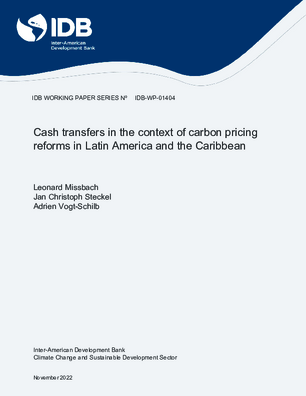Cash transfers in the context of carbon pricing reforms in Latin America and the Caribbean
Date
Jan 2023
One reason carbon prices are difficult to implement is that they might imply high additional costs on poor and vulnerable households. In response, studies often highlight that recycling revenues through cash transfers can render carbon pricing reforms progressive. This neglects that existing cash transfer programs target households from low-income groups often imperfectly and that impacts of a carbon price are heterogeneous within income groups. In this study we analyze the role of existing cash transfer schemes to alleviate distributional effects of carbon pricing in 16 Latin American and Caribbean countries. We find carbon pricing to be regressive in 11 countries, progressive in 5, and show that differences within income groups exceed differences between them. Beyond total household expenditures, car ownership and cooking fuel explain the variance in carbon pricing impacts. We show that households who are most affected by carbon pricing, some of them poor, do not necessarily have access to existing cash transfer programs. Governments aiming to compensate households may broaden coverage of existing cash transfer programs or consider complementing instruments such as in-kind transfers or removing existing distortionary taxes.




